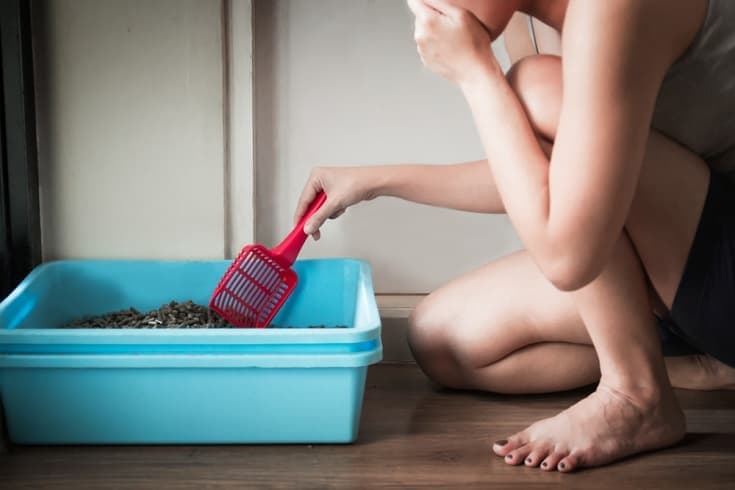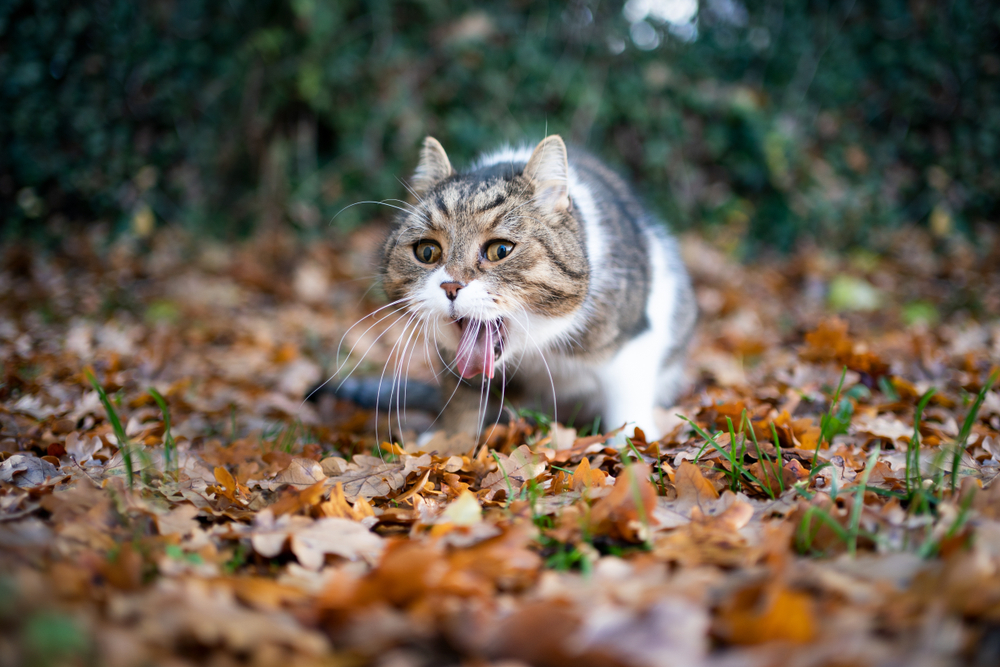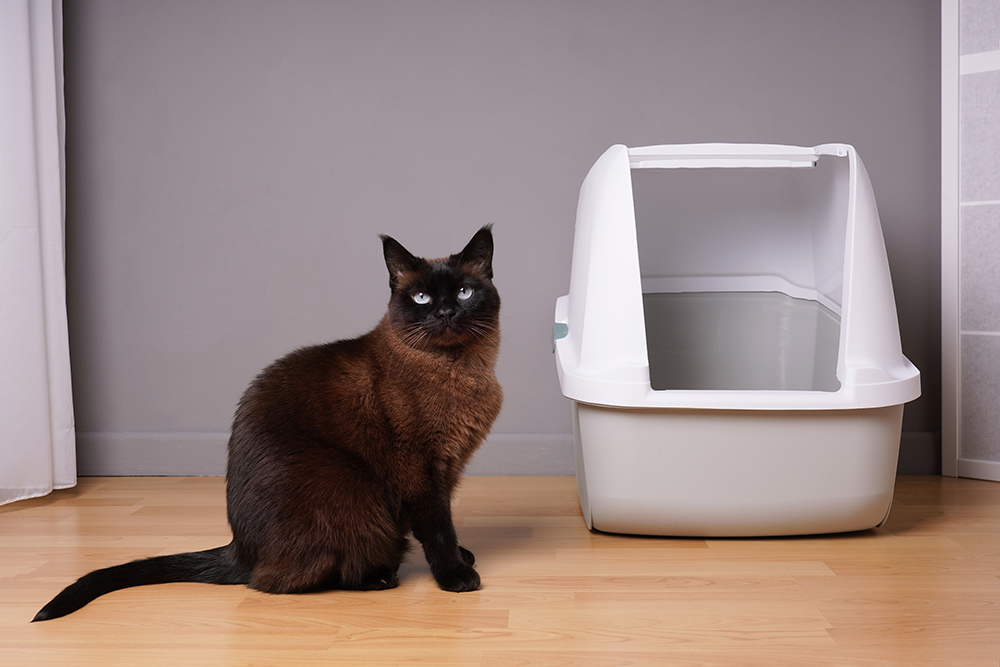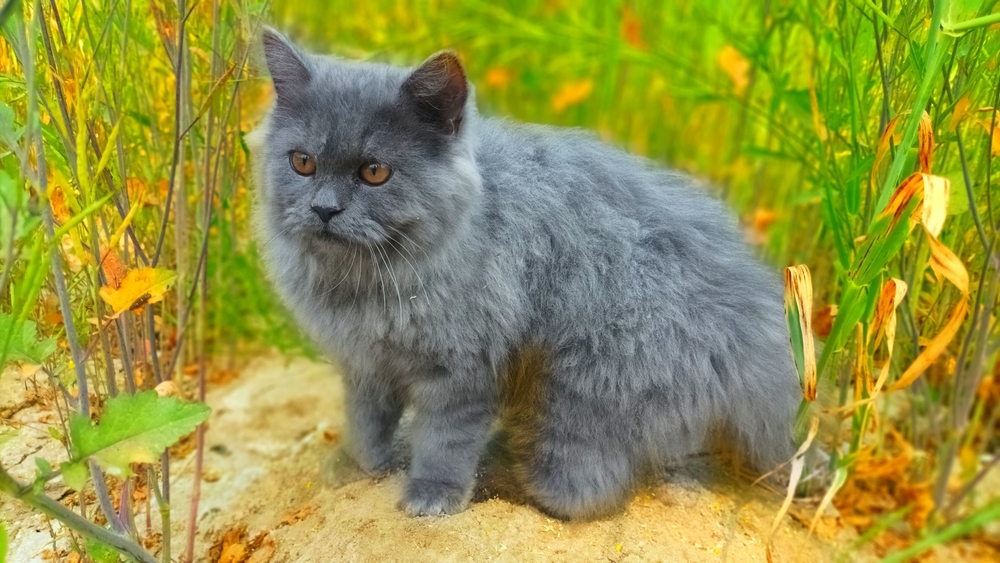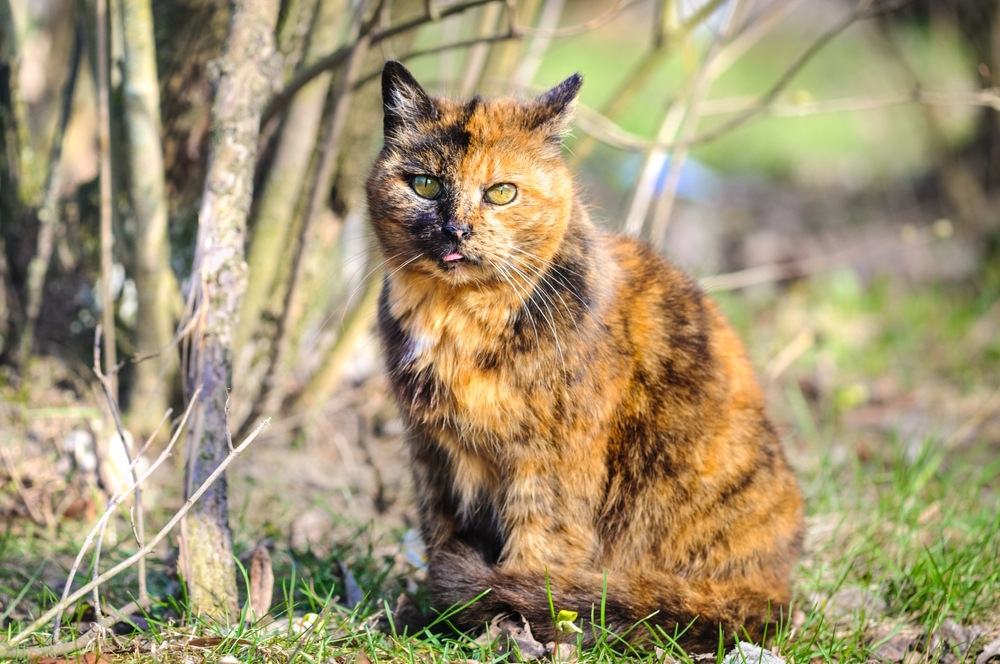If you own a cat, you’re intimately aware of how much their urine can smell. Dealing with a stinky litter box day in and day out isn’t exactly the best part of taking care of a feline. What exactly makes their litter smell so bad?
Here, we go over what makes cat urine smell so strong. We also give you tips on the best ways to eliminate the odor.

The 6 Reasons Why Cat Pee Smells So Bad
1. Ancestors
To understand why cat urine is so particularly strong, you must first understand where cats came from. The ancestors of domestic cats lived in the desert, and their bodies were designed to absorb as much moisture as possible from their urine in order to maintain hydration.
Since modern cats evolved from desert cats, their urine is still quite concentrated in response to that original desert environment. Concentrated urine equals smellier urine.
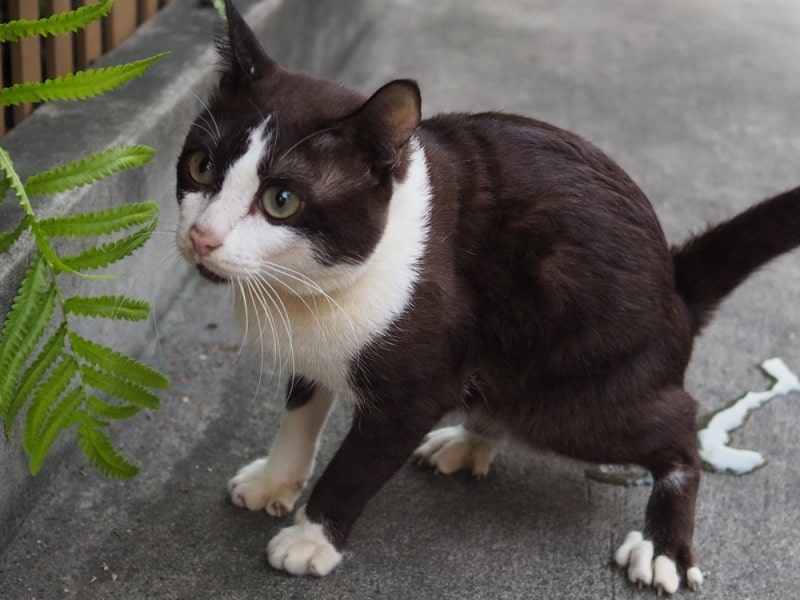
2. Bacteria
Cat urine is made up primarily of uric acid, with bacteria thrown in for good measure. After a cat pees and it has been sitting for a while, the bacteria have time to do their work.
Fresh cat pee isn’t quite as smelly as it is when the bacteria in it start to decompose, which is what gives it that intense ammonia odor.
3. Mercaptans
Mercaptans are the next stage in the decomposition of a cat’s urine. As the bacteria continue to decompose, they start to release mercaptans, which are also found in a skunk’s spray. So, the longer a cat’s urine sits around, the smellier it gets.
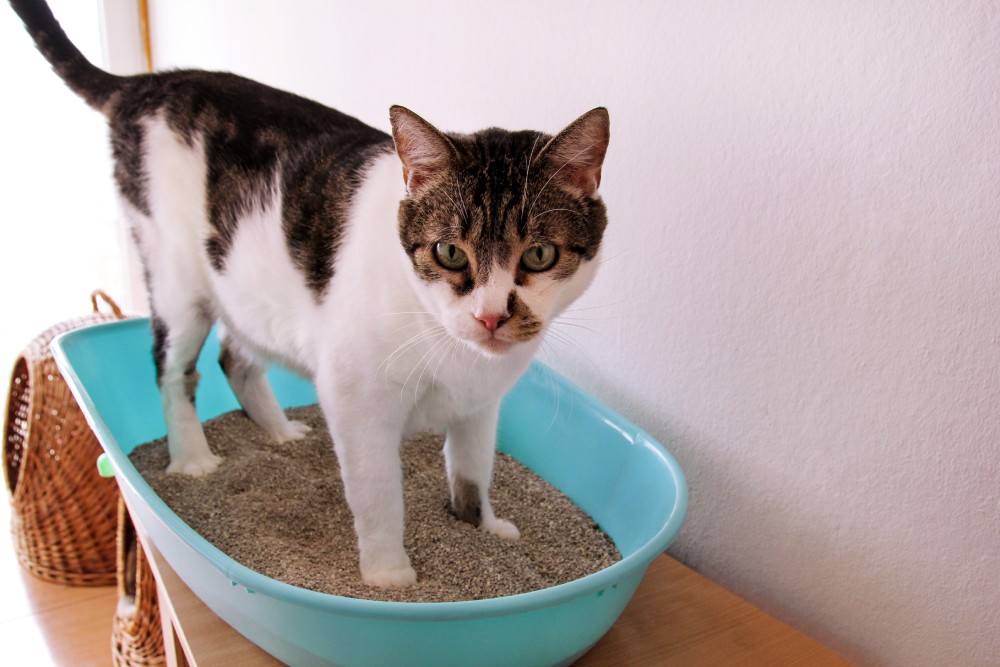
4. Intact Male Cats
Male cats that haven’t been neutered yet tend to have more pungent urine, particularly compared to female cats. This is due to the extra testosterone and certain steroids that they are carrying around. Add this to the fact that intact male cats will spray urine as a part of marking behavior, and you have a recipe for a stinky disaster!
5. Senior Cats With Kidney Issues
Older cats with kidney problems are more likely to have urine that smells worse than that of young cats. When the kidneys don’t work as efficiently as they should, it can contribute to more concentrated urine or cause higher bacteria levels. Both of these changes can create stronger-smelling urine.
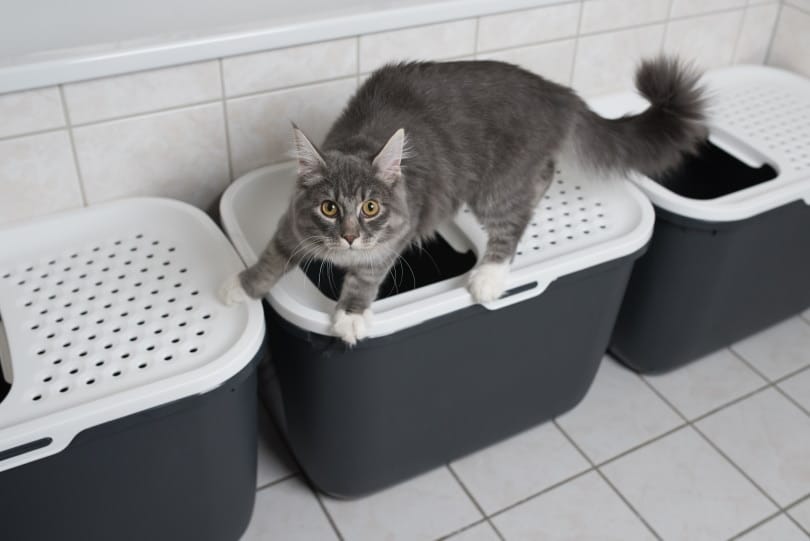
6. Just Sitting There
The longer the urine sits, the stinkier it gets. So, if the litter box isn’t cleaned often enough, you can certainly expect to smell it. Also, cats sometimes pee outside of the litter box. This could be from a health or behavioral problem, but it could also be from them accidentally peeing over the side.
If you’re unaware that this has occurred, the urine will go through the decomposition process, and the smell will guide you to where you need to clean.

Next Steps
So, now that you know what causes the strong smell of cat urine, let’s go over the best ways to eliminate it.
First, if you have an intact male, you should look into having him neutered. This will help eliminate the spraying and take the strong urine scent down a notch. It’s best to get this done while the cat is still young, as the older he is, the more likely that he’ll still occasionally spray.
Second, if you have a senior cat, you should regularly visit your vet, particularly if your pet has kidney issues. The vet may suggest giving your cat extra fluids, a different kind of food, and prescribed medication that may help them live a longer and much more comfortable life. It should also help reduce the pungency of their urine odor.
Finally, you’ll need to stay on top of cleaning the litter box and anywhere else that your cat might be urinating. If you suspect they are peeing in places other than the litter box, you can invest in a blacklight and do a little sleuthing.
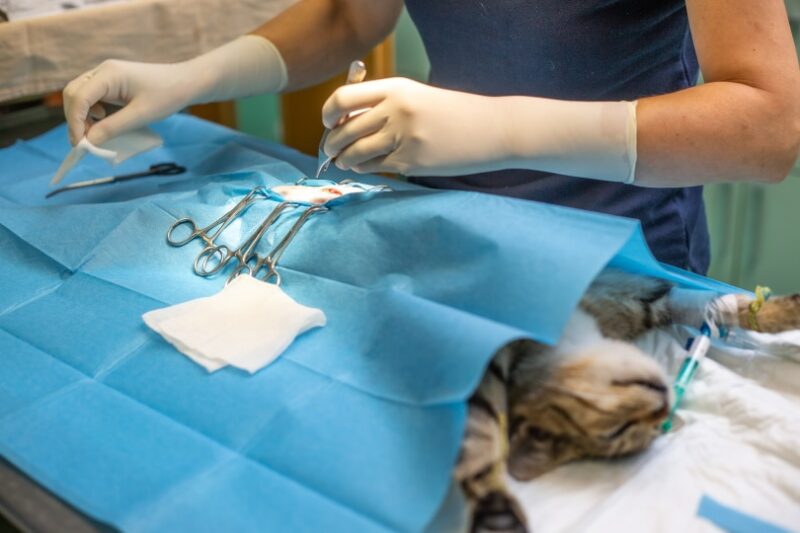
Best Ways to Combat the Smell
It’s important that you remove cat urine with the right cleaning products. Do not, under any circumstances, use bleach or any kind of ammonia products. These can mimic cat urine odor and will continue to draw your cat to the same area to urinate. There are DIY methods that you can use to remove the scent, but your best bet is to purchase a good enzymatic cleaner. This kind of product breaks down the uric acid in the urine, which is what can lead to a stinky odor.
You can also look into using deodorizers or even air purifiers, which can help. But be careful about using scented products around your cat. Many essential oils are toxic to cats, so it’s best to avoid using them around your feline friend.
But while using products to hide the smell can help, that’s all you’re doing: masking the smell. It’s always best to stay on top of cleaning it first.
Our Favorite Enzyme Cleaner
The Hepper Advanced Bio-Enzyme Pet Stain & Odor Eliminator Spray is our favorite enzyme cleaner out there. It permanently removes even the very worst kitty stains and smells, leaving your home fresh and clean! Click here to learn more about this amazing product and get yourself a bottle.
- ADVANCED ENZYMATIC CLEANER - Penetrates the most stubborn smells and stains at the deepest molecular...
- FOR ANY MESS, ON ANY SURFACE - This pet odor eliminator cleans your carpets, floors, furniture,...
- FRESH, NATURAL ODOR - Our unique formulation doesn't rely on dangerous or unpleasant chemical...
At Catster, we’ve admired Hepper for many years, and decided to take a controlling ownership interest so that we could benefit from the outstanding products of this cool cat company!

Conclusion
Now that you’re armed with knowledge and a few resources, you can fight that nasty cat urine odor. Keep the litter box clean, and try to find any accidents before they become the source of a stinky problem.
If you’re concerned about your cat urinating outside of the litter box, speak to your vet. Several health problems can cause this behavior and would need to be checked out, just in case.
Also, ensure that you’re using the right litter (cats prefer something with a more sand-like texture, and unscented is best) and that the litter box is in the best place. Your cat’s comfort has much to do with litter box behavior. A happy cat can sometimes mean a less stinky mess.
Featured Image Credit: catinsyrup, Shutterstock

